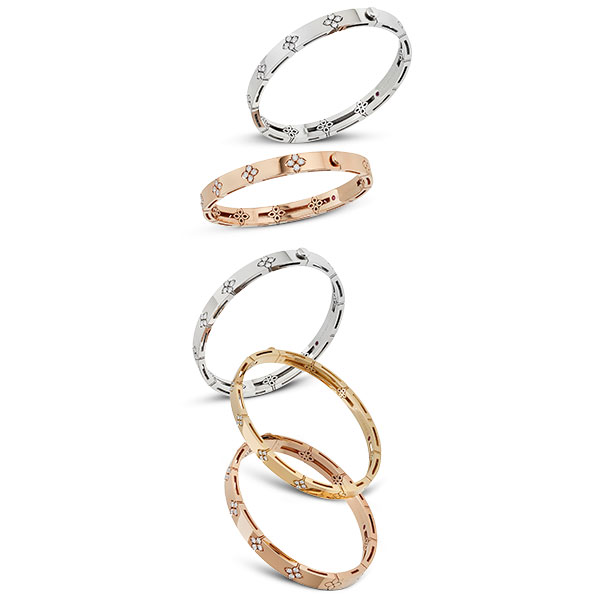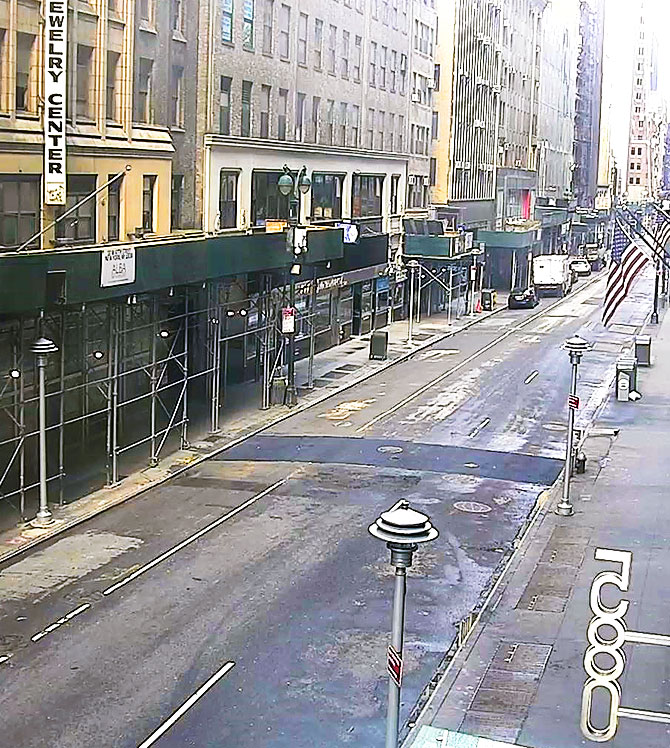
In March, the pandemic caused by COVID-19 disrupted the jewelry trade—and the world—to an unprecedented degree, with jewelry retailers and businesses across the United States and the world forced to close.
At press time, many retailers around the country had reopened or were poised to reopen in the wake of government-mandated lockdowns that saw an estimated 630,000 U.S. stores close their doors. Many big retailers, including Signet, Macy’s, and J.C. Penney, closed their North American stores and put their workers on furlough, which means they can collect unemployment but still receive benefits.
Small retailers felt the pain most acutely; many faced the agonizing choice of either not paying their employees or going out of business. Congress responded with a $2 trillion stimulus package meant to bail out smaller companies, with billions of dollars in loans administered by the Small Business Administration and SBA-approved lenders.

And while many online companies were able to carry on with operations, others were affected. The U.S. branch of Net-a-Porter, for example, suspended operations because it could no longer staff its fulfillment centers.
Some jewelers did remain open. For instance, Florida declared pawnshops and certain jewelry stores essential services, because they provided a financial service: trade-ins. But the Florida jewelers who talked to McClatchy news service said business was mixed.
Jewelers weren’t the only ones who had to change their plans: Many prominent industry events—including JCK Las Vegas, Couture, the American Gem Society Conclave, and Baselworld—were postponed, canceled, or switched to digital formats. De Beers Group canceled its April sight in Botswana due to that country’s travel restrictions—the only time it has canceled a sight in recent memory, likely since World War II, a spokesperson said.
Diamond cutting also ceased in India, after that country went into a 21-day lockdown. Watchmakers including Rolex and Patek Philippe closed their factories—and, in a first, Patek Philippe actually let some of its jewelers sell online. Other manufacturers, like Chow Tai Fook and LVMH-owned Bulgari, turned their factories into producers of suddenly sought-after supplies such as hand sanitizer and face masks.
At press time, numerous people in the jewelry business said they had contracted the disease, and five in the United States are believed to have died from it: Julio Ramirez, a 43-year-old senior account executive with M.K. Diamonds; Randy Flatau, owner of Randy’s Fine Jewelers in Beaumont, Texas; metals artist Hellyn Moore Pawula; Bob Sears Siragusa, a former watch executive; and New York City diamond dealer Manny Gordon.
For the most part, jewelers have embraced the restrictions—even those who worry about their business being the virus’ next victim.
Speaking from Italy—one of the first countries to be hit hard by the illness—legendary designer Roberto Coin remarked that the social distancing measures, as burdensome as they are, were necessary in the face of such a dangerous and unpredictable illness.
“Business will come back,” he said. “People don’t come back.”
Top: Love in Verona bangles in 18k gold with diamonds; $4,950–$6,950; Roberto Coin; 212-486-4545; robertocoin.com
(47th Street: Diamond District Partnership)